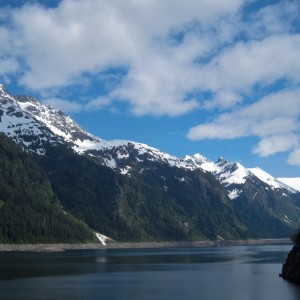The Stream, February 5: Zimbabwe, Hit By Drought, Will Declare National Emergency
The Global Rundown
Zimbabwe announced plans to declare a national emergency as it faces food shortages amid a severe drought, while water levels rose at Kariba dam, potentially avoiding a shutdown of one of Zambia’s major hydropower plants. Coal last year dropped to its smallest portion of U.S. electricity generation since records began, an Australian energy company abandoned plans to develop coal seam gas in New South Wales, and a city official in Johannesburg, South Africa asked residents to consider drilling boreholes to fight the drought. Brazil estimated that a tailings dam failure at an iron ore mine last year cost cities hundreds of millions of dollars. The U.S. Environmental Protection Agency said necessary upgrades to wastewater infrastructure in the Great Lakes region could require billions of investment dollars.
“We are going to announce to the world the hunger we’re facing. We have drought in this country and it is a pending disaster.” –Emmerson Mnangagwa, vice president of Zimbabwe, on plans to declare a national emergency due to food shortages. The dry weather is damaging crops and livestock herds, and the situation is “deteriorating at an alarming rate,” according to a United Nations official. (Bloomberg)
By The Numbers
$80 billion Amount of wastewater infrastructure investment needed in the Great Lakes region over the next 20 years, according to a report by the U.S. Environmental Protection Agency. Healing Our Waters-Great Lakes Coalition
3 centimeters Increase in water levels at Kariba dam over the past week, potentially avoiding a shutdown of Zambia’s major hydropower plant at the dam. Bloomberg
$308 million Cost to cities downstream of a tailings dam failure at a Brazilian iron ore mine last November. The estimates do not include environmental damages. Reuters
Science, Studies, And Reports
Only 34 percent of electricity generation in the United States came from coal in 2015, the lowest amount since records began in 1949, a report commissioned by the Business Council on Sustainable Energy found. About 5 percent of the country’s coal-fired power plants, which use large quantities of water, were shut down last year. Guardian
On The Radar
Australian energy company AGL announced Thursday that it would no longer pursue coal seam gas projects in New South Wales, citing drops in oil and gas prices. Activists, who have long opposed coal seam gas projects in the state due to concerns about their environmental damage to forests and water, said the decision raised hopes that other companies would follow suit. Guardian
A city official in Johannesburg, South Africa called on residents this week to consider drilling boreholes in their yards to combat a severe drought. The city’s municipal water system is increasingly under stress from growing demand. Eyewitness News
A news correspondent for Circle of Blue based out of Hawaii. She writes The Stream, Circle of Blue’s daily digest of international water news trends. Her interests include food security, ecology and the Great Lakes.
Contact Codi Kozacek







Leave a Reply
Want to join the discussion?Feel free to contribute!